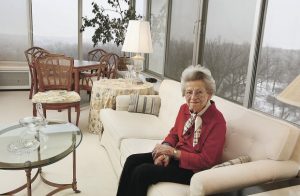 May 2019
May 2019
Housing aging relatives in a condo rather than in a more supportive care environment can be a security and safety risk not only to those directly affected but to all residents of a condo building.
The cost of retirement or assisted living facilities can deplete family resources if an aging relative resides there for an extended period, and may leave limited to no financial assets for more advanced care when needed; it may also result in depletion of an expected inheritance. Purchasing a condo using proceeds from the sale of a family home looks more appealing, at least at the beginning, as it provides a home for the aging relative as well as an estate expected to increase in value.
Far too often however, this solution is not well thought out and the aging relative is left to suffer deterioration in physical or cognitive state on their own. At the extreme, there may be abandonment by heirs intent on protecting their inheritance.
The implications for condo corporations exposed to these problems are extensive. Residents experiencing memory impairment may cause a fire by leaving the stove or microwave on too long, flooding due to unchecked running water, odour problems due to hoarding and decreasing home hygiene. The social atmosphere of the community also may be affected.
Condo leaders are caught between the need to maintain the safety and positive atmosphere of their communities and the desire to assist residents requiring intervention. Finding the balance between risk management and personal privacy can be a challenge. Condo management may contact local health care agencies for guidance; understanding what assistance is required and how to provide it is important. When possible and appropriate, they may also reach out to involved next of kin.
Condo communities provide a great home for aging or disabled individuals who are capable of independent living. When assistance is required to maintain independent living, condo communities can assist to some degree but cannot and should not replace family and other more personally involved parties. Condo corporation rules and by-laws need to be enforced equally among all residents regardless of personal circumstances. Should the resident and/or family members refuse to address identified problems, it may be necessary to consider collection of fees and insurance deductibles for claims that arise from resident negligence.
 For more information including community resources see the following articles in the Condo Archives:
For more information including community resources see the following articles in the Condo Archives:
- Aging in Place
- Condos and Aging – Part 1
- Condo and Aging – Part 2
- Elder Care Obligations of the Condo Corporation



